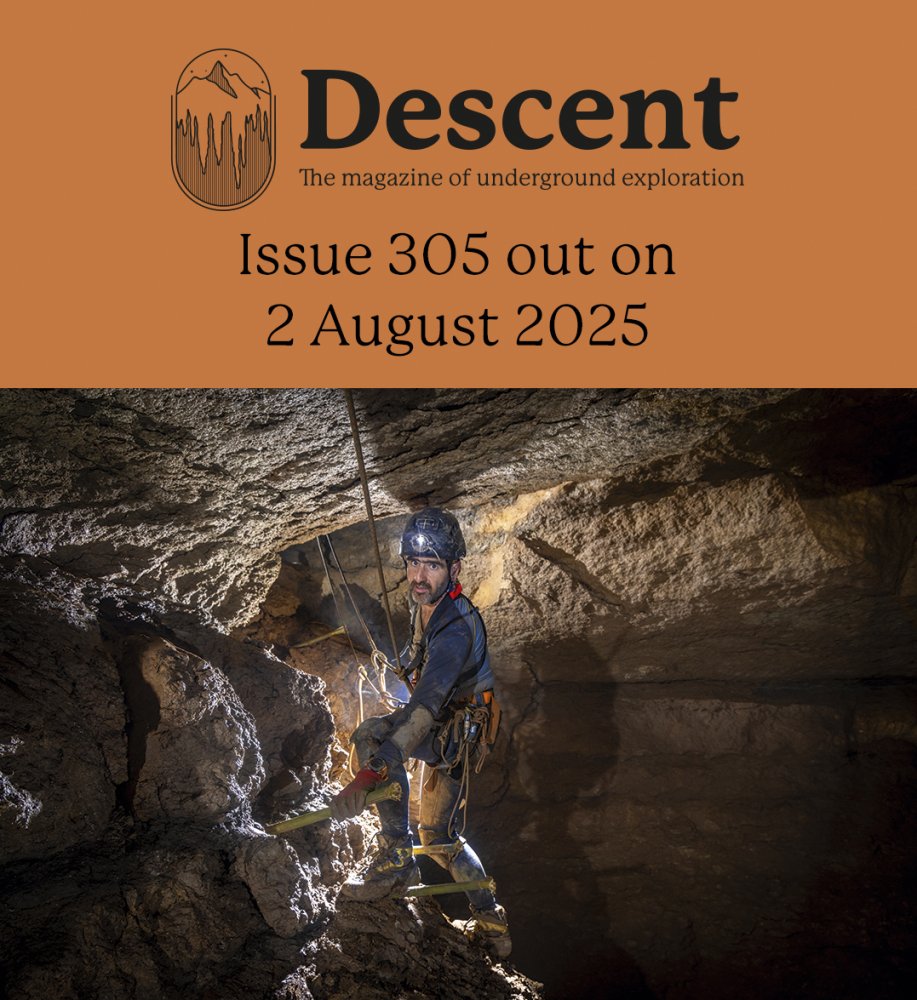Early plastic helmets were massively affected by UV (you can usually check this by comparing colour of interior to exterior), hence the original 5 year recommendation. Modern helmets use much better stabilisers & are better designed, so 10 years has become the average, but this is solely based on what the manufacturer is prepared to take liability for & what the opposition are offering (to make more sales).
Of course UV isn't as much of an issue for caving as it is for climbing (unless you leave it outside to dry). If you don't dry it properly then the straps will degrade. So, how the helmets are looked after is much more important than any shelf life - stuffing it in the bottom of your tub with heavy / wet kit on top will shorten it's period of usefulness!
We've destroyed numerous helmets with a sledge hammer over the years & no matter what age or state they were in (short of already being cracked), they all took more force to destroy than your head would if inside them.
As long as you have a sensible inspection & retirement system, that is being followed and keep a record of each individual helmet, you don't need to worry about one failing in use. However, if you have multiple groups using them, so can't be quite sure that all take as much care as yourselves, then I would definitely stick to recommended life.
(Of course, there are now "single use" designs available, that are designed to break & absorb the impact - these aren't really suitable for caving or mountaineering use, as you're not likely to be carrying a spare).
Of course UV isn't as much of an issue for caving as it is for climbing (unless you leave it outside to dry). If you don't dry it properly then the straps will degrade. So, how the helmets are looked after is much more important than any shelf life - stuffing it in the bottom of your tub with heavy / wet kit on top will shorten it's period of usefulness!
We've destroyed numerous helmets with a sledge hammer over the years & no matter what age or state they were in (short of already being cracked), they all took more force to destroy than your head would if inside them.
As long as you have a sensible inspection & retirement system, that is being followed and keep a record of each individual helmet, you don't need to worry about one failing in use. However, if you have multiple groups using them, so can't be quite sure that all take as much care as yourselves, then I would definitely stick to recommended life.
(Of course, there are now "single use" designs available, that are designed to break & absorb the impact - these aren't really suitable for caving or mountaineering use, as you're not likely to be carrying a spare).



